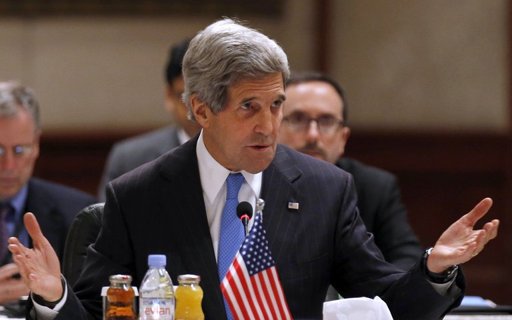Having lived in Egypt for a few months now, nothing about Ramadan seems particularly surprising. Not the lamps, not the iftar tables set up along every street, and certainly not the massive gridlock that grinds our metropolis to a halt at around 3 pm.
There is, however, something rather unique in the Egyptian reaction to the occasion. Walking the streets of Cairo at 6 pm is to feel like one is in an episode of the Twilight Zone, a dream world which is at once both eerily empty and serene. And having made the walk through Talaat Harb during iftar several times now, I think I’ve finally figured out how they filmed the final scene of the “Yacoubian Building .
There is one aspect of this observance that raises an eyebrow, however, the feasting.
Ramadan is the time when Muslims all over the world abstain from food, drink, and other physical needs during the daylight hours. As a time to purify the soul, refocus attention on God, and practice self-sacrifice.
Self-sacrifice.
Yet somehow, and I have this on good authority from a number of Egyptians, this gets overlooked every Ramadan by the scores of people who pack the local falafel shop, Gad and, judging by the amount of Cook Door being crammed into the trunk of the station wagon in front of my apartment building, have delivered to their door more food than they would ordinarily consume in two days, let alone one. These iftars consist of large quantities of meat and special deserts prepared just for the holiday season, which hardly makes it seem sacrificial.
Don’t get me wrong, I’m not fasting this month, or any other. I don’t know what it’s like to go an entire day without food for a month. What I do know, however, is that gorging oneself to break a fast meant to focus the mind on God through self-sacrifice seems to defeat the purpose.
But hey, I’m not a Muslim, so I looked around. According to Al Imam Al Ghazali s, “Inner Dimension of Islamic Worship, the object of fasting during Ramadan “.is to experience hunger and to check desire, in order to reinforce the soul in piety … It is therefore essential to cut down one s intake of what one would consume on a normal night, when not fasting. No benefit is derived from the fast if one consumes as much as he or she would usually take during the day and night combined.
Yup. That’s what I thought.
So let’s just look at this critically for a moment. During Ramadan people fast to cleanse themselves, both physically and spiritually, and refocus their minds to what they consider the higher purpose of their lives. As fate would have it, this holiday also marks the time when people spend small fortunes hosting iftars and gaining weight. Finally, an Islamic holiday I can totally relate to.
As an American I have spent the better part of my life trying to understand the religious significance of Christmas. To me, it always seemed like more of a spectacular event (which, coincidentally, lasts for a month as well) on the calendar of every business in the country than a holy day. Could Ramadan be the same? Could it be that Ramadan serves as the most “consumptionist time of the Muslim year? It would sure seem so.
But if there was a victim of the Ramadan season, piety isn’t it. The faithful still fast and pray, the poor are fed by donation and the amount of good deeds that are done probably exceeds any other month of the year. Instead, it is the countless poor people who faithfully observe despite their impoverished circumstances.
It is said that the fasting of Ramadan “is intended to help teach Muslims self-discipline, self-restraint and generosity. [and] reminds them of the suffering of the poor, who may rarely get to eat well.
This begs the question, if the minds of the faithful are to be drawn to the circumstances of the poor, who are the poor to think of, and thus appreciate being better off than?I don’t think there’s anybody left!
Now I’m sure there are plenty of people who will be angered by an article such as this. Some sensibilities will no doubt be offended by this argument and no less by the fact that it is being presented by a non-Muslim. But questions are questions regardless of the quarter from which they come.
There are many issues to be examined regarding the practice of the Ramadan fast. For me at least, these have nothing to do with how accurately the practice is carried out. I’m not an authority on any religious practice, Islamic or otherwise. But even without including an examination of the health risks associated with a month of eating this way, it is hard to ignore the inescapable implication of such a practice – that feasting negates the point of fasting.

